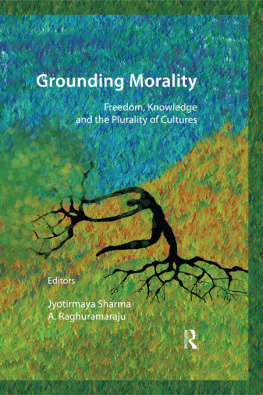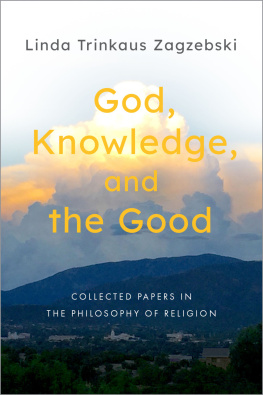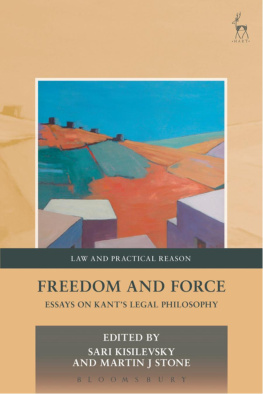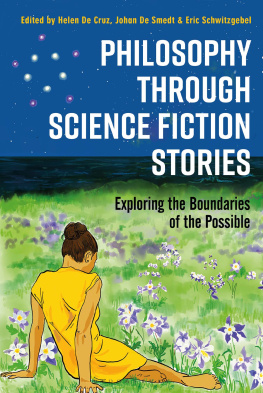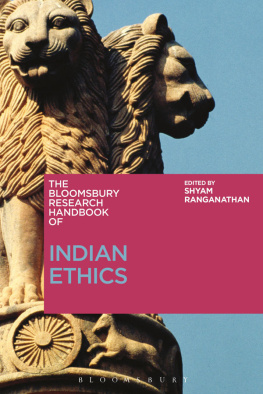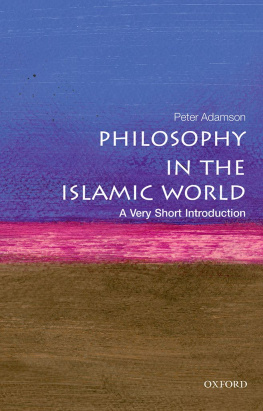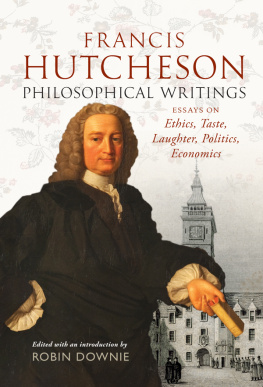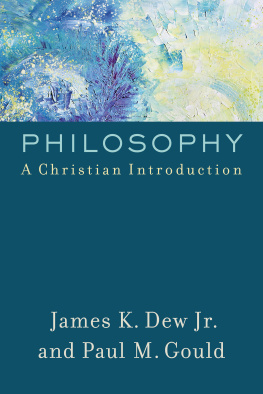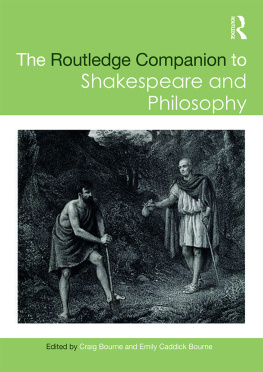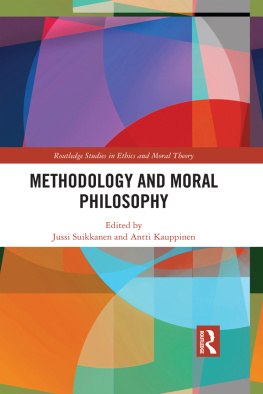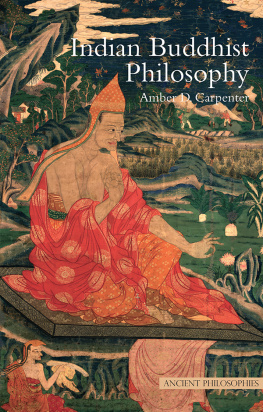
Grounding Morality
Grounding Morality
Freedom, Knowledge and the Plurality of Cultures
Editors
Jyotirmaya Sharma
A. Raghuramaraju

First published 2010
by Routledge
912-915 Tolstoy House, 15-17 Tolstoy Marg, New Delhi 110 001
Simultaneously published in the UK
by Routledge
2 Park Square, Milton Park, Abingdon, Oxon, OX14 4RN
Routledge is an imprint of the Taylor & Francis Group, an informa business
Transferred to Digital Printing 2010
2010 Jyotirmaya Sharma and A. Raghuramaraju
Typeset by
Bukprint India
Delhi
All rights reserved. No part of this book may be reproduced or utilised in any form or by any electronic, mechanical or other means, now known or hereafter invented, including photocopying and recording, or in any information storage and retrieval system without permission in writing from the publishers.
British Library Cataloguing-in-Publication Data
A catalogue record of this book is available from the British Library
ISBN: 978-0-415-58575-0
These essays have been put
together to honour
Professor Mrinal Miri by
two of his students.
Gurostu mounam vyakhyanam,
Sishyastu chhina samshaya.
His teaching consists only of silence,
while his students learn and have
all their doubts cleared.
Contents
Preface An Alchemist of Our Times
P latos portrayal of the philosopher is that of an aloof, but self-sufficient individual, lost in contemplation and in acquiring knowledge. He is devoted to reason and does not allow the ordinary and the mundane to enter his well-entrenched fortress of a life lived by the demands of this all-encompassing reason. He has little time for poets, and, while his life is circumscribed by a single-minded pursuit of truth, purity and stability, he is constantly on guard against the sorcery of the senses. The venerable sages in the Indian tradition are what philosophers are to the Greek tradition. While there are many intimations of a similarity between Platos ideal and certain strands of Indian metaphysics, the most compelling definition of what a sage-philosopher ought to be comes to us in the Mahabharata. A true sage is one, suggests the epic, who is not afraid of anyone. But that is not reason enough to characterise an individual a sage. Not being afraid of anyone is easy enough. It could be the product of brute power, hubris, egotism and insensitivity. Something else, therefore, is needed. The Mahabharata, then, goes a step further to define a true sage. A sage is one who no one is afraid of, one who does not intimidate, threaten or overwhelm others.
Mrinal Miri easily fits the definition delineated by the Mahabharata. As a philosopher, teacher, husband, father, friend and administrator, he has embraced the world with enthusiasm without being afraid and without inducing fear in others. He has done this gently, and with great modesty and style. As a scholar, his work has been the epitome of clarity and lucidity. For him, philosophy has never been a way of bewitching his audience with gimmickry, but a journey on the way to becoming a better person. In that sense, philosophy for him has been a quest independent of fashions and trends, free of jargon and refreshingly devoid of clichs. Yet philosophy, or rather the activity of philosophising, has remained an abiding engagement, almost a sacred duty for him. As a teacher, Miri has never fallen into the temptation of creating clones among his students or of telling them how to live their lives. He has taught through suggestion and example, but more so by conversation. In a lifetime as a scholar and teacher, he has shunned cant, hypocrisy and snobbery. In his book, the worst crimes a human could be guilty of are pomposity, sanctimoniousness and self-righteousness. But he has always maintained that even those who fall into the trap of these vices deserve a second chance. Empathy, generosity and effortless grace are an integral part of what has, for years, made Miri the extraordinary sage-philosopher of our times.
Many of us remember the small room attached to the Directors room at the Indian Institute of Advanced Study at Shimla, where Mrinal Miri was Director for two terms. Miri never sat at the designated desk meant for the Director, nor was the large room, haunted with memories of Lord Curzon and his imperial successors, of any use to him. Rather, it was this little room, almost a garret, which came to be identified most with him. From this room, he could look at the sprawling gardens of the Institute; the afternoon and evening sun would splash its warmth and light in that unique space he had created for himself, merging space and light in a mountain effulgence all of its own. Scattered in front of him were books, papers and a clutch of fountain pens, with the smell of freshly brewed coffee escaping the room, welcoming anyone who cared for its rich aroma and the joys that the eventual imbibing of the brew foretold. Sitting there, conversation would always be carried out in hushed, peaceful, relaxed tones. Even censure and admonition would be meted out in the same register. But there would be many occasions when this man, whose voice was a mere whisper, would break into uncontrollable laughter, body shaking with mirth, participating in something not as kitsch as happiness, but in an emotion that would come close to the eudaimonia of the Greeks.
Miri transcends the distinction between the vita activa and the vita contemplativa with effortless ease. While at Shimla, he restored the lawns and gardens of the Institute with care and precision, earning from Professor Sujata Miri, his wife, the epithet of head gardener. He knew the names and calls of all the birds that inhabited the rich wooded area around the Institute and would identify each with unconcealed pleasure. The quiet passion that he brings to brewing a perfect cup of coffee, to cooking an elaborate meal or to appreciating a piece of music is also evident in his philosophical precision, analytical rigour and in the use of carefully chosen words and phrases in the manner of one who worships language and by whose carefully wrought phrases language itself lives. Miris philosophical training in India, at the St Stephens College in Delhi, and in England, at Cambridge University, did not fetter him into following a given philosophical path. Neither did it create resentment or bitterness towards the limitations that academic philosophy often impels in a creative and thoughtful individual. Rather, he has charted his own path, singularly, and with a degree of modesty that is both rare and refreshing. A glimpse of this philosophical journey is to be found in the introduction of his recent volume, titled Identity and the Moral Life. To summarise the central strand of his argument, however inadequately, would be an attempt to introduce the philosopher in his own voice. If this particular piece of writing is being singled out, it is only because it is the only instance of Miri explicitly taking about his work and its evolution.
In this essay, Miri acknowledges that over a period of time, the way a philosopher thinks, even the style and substance of what he says, may alter. This transformation might be cosmetic, but there are times when this change is unrecognisable. Despite this obvious metamorphosis, there is always the possibility of retaining a thread of continuity. This intellectual transformation is neither a given, and there is no telling of the ways in which it might manifest itself. In an individual, and here Miri uses the phrase a single personality, who also happens to think philosophically, changes can lead to maturity and integrity, but also towards immaturity, corruption and debasement. What Miri seems to suggest is that the act of philosophising and the language of philosophy is not merely a cognitive tool, but, rather, the philosopher employs it the way he breathes, eats, creates a shelter for himself or dresses. The philosopher, then, is what Henry James called a cluster of appurtenances.
Next page
